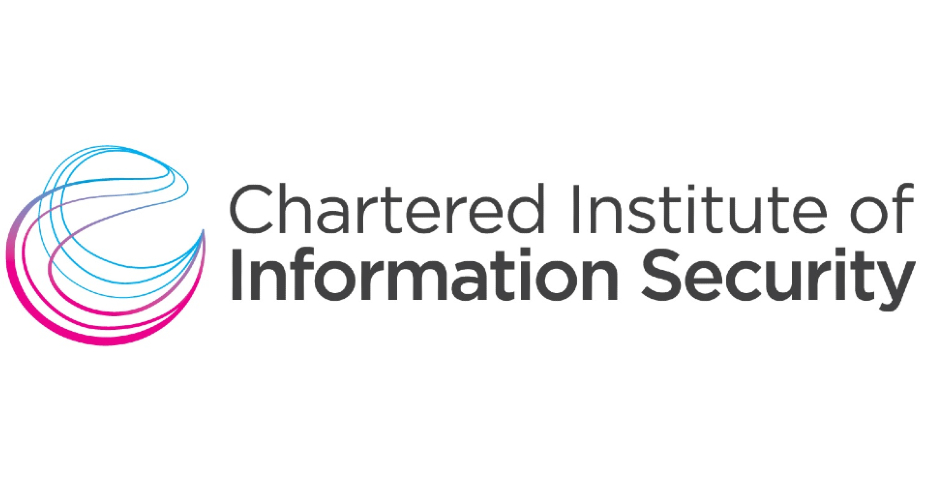Masters applications for 2023 entry are now closed.
Applications for September 2024 will open on Monday 25 September. Applications are now open for programmes with a January 2024 start. View our programmes »
Overview
- Taught in partnership with the University of Exeter Business School, Law School and leading experts from Industry
- Designed to support students without a background in cyber security or data analytics to start a career in these areas
- Learn how to recognise and manage risks to a network or a system’s security with Data Analytics, and how to build and defend secure systems with Cyber Security
- Explore wider security elements including mathematical, human and societal factors, and the option to study cyber security law and the future of virtual currency
- Enjoy our integrated ‘mini lecture series’, consisting of guest lectures from industrial partners involved in the cyber security sector.
Top 10 in the UK for graduate prospects
Partner to the Alan Turing Institute and home to the Institute of Data Science and Artificial Intelligence
Excellent facilities spanning a wide range of machine types and software ecosystems
Courses designed to launch and develop careers for those working in or entering data and technology-driven roles
Top 10 in the UK for graduate prospects
Partner to the Alan Turing Institute and home to the Institute of Data Science and Artificial Intelligence
Excellent facilities spanning a wide range of machine types and software ecosystems
Courses designed to launch and develop careers for those working in or entering data and technology-driven roles
Entry requirements
Applicants are required to have at least a 2:1 degree in a strongly numerate subject (e.g. computer science, mathematics or physics) and must be able to show evidence of good programming ability in a recognised modern computer language. Applicants may be interviewed by video conference to assess their programming ability and suitability for the course.
The Python programming language is used extensively during this course and applicants with experience in other languages will be asked to learn basic Python before commencing the course.
We may consider applications with non-standard qualifications where there is evidence of exceptional performance in modules relevant to the programme of study, significant relevant work experience, or relevant professional qualifications.
Entry requirements for international students
Please visit our entry requirements section for equivalencies from your country and further information on English language requirements.
Read more
Entry requirements for international students
English language requirements
International students need to show they have the required level of English language to study this course. The required test scores for this course fall under Profile B3. Please visit our English language requirements page to view the required test scores and equivalencies from your country.
Course content
This programme is modular and flexible, carrying 180 credits in total and offering flexibility in the choice of modules studied.
MSc Cyber Security Analytics consists of core compulsory Cyber Security and Data Analytics focussed modules worth 60 credits, a 60-credit MSc Research project, and 60 credits of optional modules (two chosen from Cyber modules and two from Data Science / Analytics).
The programme starts in September and the taught elements are concluded by May. The MSc Research project, under the personal supervision of a research expert in the chosen area, continues until September.
Your research project should typically apply knowledge of both Cyber Security and Data Analytics.
The modules we outline here provide examples of what you can expect to learn on this degree course based on recent academic teaching. The precise modules available to you in future years may vary depending on staff availability and research interests, new topics of study, timetabling and student demand.
Compulsory modules
| Code | Module | Credits |
|---|
| CYBER MODULES (Select 30 credits) |
| ECMM462 | Fundamentals of Security | 15 |
| ECMM463 | Building Secure and Trustworthy Systems | 15 |
| DATA SCIENCE / ANALYTICS MODULES (Select 30 credits) |
| ECMM443 | Introduction to Data Science | 15 |
| COMM108 | Data Systems | 15 |
| PROJECT |
| COMM514 | Research Project | 60 |
Optional modules
| Code | Module | Credits |
|---|
| CYBER MODULES (Select 30 credits) |
| ECMM464 | Security Assessment and Validation | 15 |
| LAWM116 | The International Law of Cyber Operations | 30 |
| LAWM129 | Human Rights and Modern Technologies | 30 |
| BEE3109 | Bitcoin, Money and Trust | 15 |
| SOCM033 | Data Governance and Ethics | 15 |
| DATA SCIENCE / ANALYTICS MODULES (Select 30 credits) |
| COMM511 | Statistical Data Modelling | 15 |
| ECMM422 | Machine Learning | 15 |
| ECMM423 | Evolutionary Computation & Optimisation | 15 |
| ECMM445 | Learning From Data | 15 |
| ECMM450 | Stochastic Processes | 15 |
| ECMM461 | High Performance Computing | 15 |
| MTHM508 | Bayesian Philosophy and Methods in Data Science | 15 |

Kornelia
Data Scientist with Adarga
Studied Data Science MSc (Professional degree apprenticeship)

Catherine
Senior Data Scientist, UK Hydrographic Office
Studied Data Science MSc (Professional)

Salma
Studying Applied Data Science and Statistics MSc
Kornelia
Data Scientist with Adarga
Studied Data Science MSc (Professional degree apprenticeship)
The course can be completed as part of the Level 7 Research Scientist apprenticeship. It means that you can remain in full-time employment while gaining a university degree alongside work. I decided to join the programme as I wanted to get back on the data science path having done an undergraduate degree in Computer Science and AI.
I attended teaching sessions in Exeter. I really enjoyed returning to the Streatham Campus on a monthly basis. It has a lot of green space, cafes, bars, a large variety of foods (Comida wraps being my favourite) and just has a great vibe. The campus is within walking distance from the city centre and the train station. You will also find plenty of affordable accommodation if you have to stay overnight. I spiced up my visits to Exeter by choosing different accommodation every time.
Catherine
Senior Data Scientist, UK Hydrographic Office
Studied Data Science MSc (Professional)
I was already working as a Data Scientist, but applied for the course because I recognised I had some knowledge gaps that this would help fill – and I could gain professional accreditation at the same time. I continued to work full time, completing all my coursework and revision in the evenings and weekends.
In my experience, and looking at my colleagues and peers that I admire, great data scientists are not always from a mathematics or computer science background (although they can be!) but rather from a hugely diverse range of backgrounds. My own undergraduate degree was in Environmental Science, and I had over a decade of industry experience working with geospatial data and remote sensing before I became a Data Scientist. I constantly refer back to my experiences or code I wrote while at Exeter in my current role, and I feel lucky to have met and worked with so many amazing people in the department.
Salma
Studying Applied Data Science and Statistics MSc
I knew I wanted to go into data science and chose this programme because it’s open to people from a non-technical background.
It’s been challenging at times but no more than I expected. I feel it’s setting me up for the direction I want to head in and bringing me up to speed with the things I need to know maths-wise. The careers support I’ve had at Exeter has been really good – I’ve been to careers events where companies come in to talk to us and had some good CV advice. Obviously Exeter is smaller than London my home town, but that’s not a negative for me - it’s just different. It took me about a month to adapt and I’m feeling really settled here now.
Fees
2025/26 entry
UK fees per year:
£12,600 full-time
International fees per year:
£29,500 full-time
Scholarships
We invest heavily in scholarships for talented prospective Masters students. This includes over £5 million in scholarships for international students, such as our Global Excellence Scholarships*.
For more information on scholarships, please visit our scholarships and bursaries page.
*Selected programmes only. Please see the Terms and Conditions for each scheme for further details.
Teaching and research
Teaching
Teaching is mainly delivered by lectures, workshops and online materials. Each module references core and supplementary texts, or material recommended by module deliverers, which provide in depth coverage of the subject and go beyond the lectures.
Internationally recognised research
We believe every student benefits from being taught by experts active in research and practice. All our academic staff are active in internationally-recognised scientific research across a wide range of topics. You will discuss the very latest ideas, research discoveries and new technologies, becoming actively involved in a research project yourself.
Supportive environment
We aim to provide a supportive environment where students and staff work together in an informal and friendly atmosphere. We operate an open door policy, so it’s easy to consult individual members of staff or to fix appointments with them via email. As a friendly group of staff, you’ll get to know us well during your time here.
Assessments
Modules are either assessed by coursework only, or a mixture of coursework and an exam. For detailed information on assessment see the programme structure for this programme.
Read more
Careers
Computer Science is at the forefront of technology and innovation. With connectivity at the heart of society, there is an increasing need for graduates who are able to understand the latest techniques and technology to negotiate problems. Huge opportunities exist for the businesses and individuals who can solve these problems using the latest technology such as artificial intelligence, machine learning, data science, high performing computing and cyber security.
Graduate destinations
Career opportunities are limitless, with graduates being found in a variety of sectors, including software engineering, health communications, education, life sciences, finance and manufacturing. This programme is particularly suited to professionals and graduates looking to develop career options or pursue academia.
Dedicated careers support
You will receive support from our dedicated Career Zone team, who provide excellent career guidance at all stages of career planning. The Career Zone provides one-on-one support and is home to a wealth of business and industry contacts. Additionally, they host useful training events, workshops and lectures which are designed to further support you in developing your enterprise acumen. Please visit the Career Zone for additional information on their services.
Read more




.jpg)











